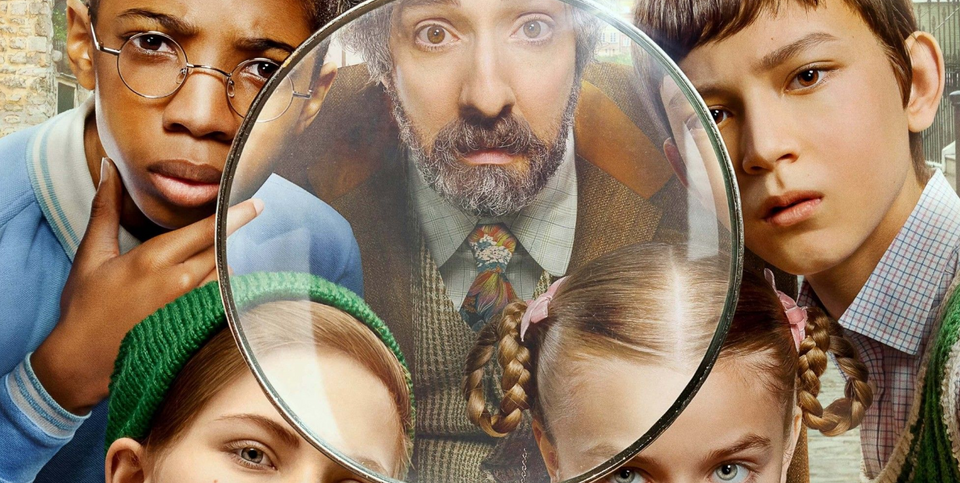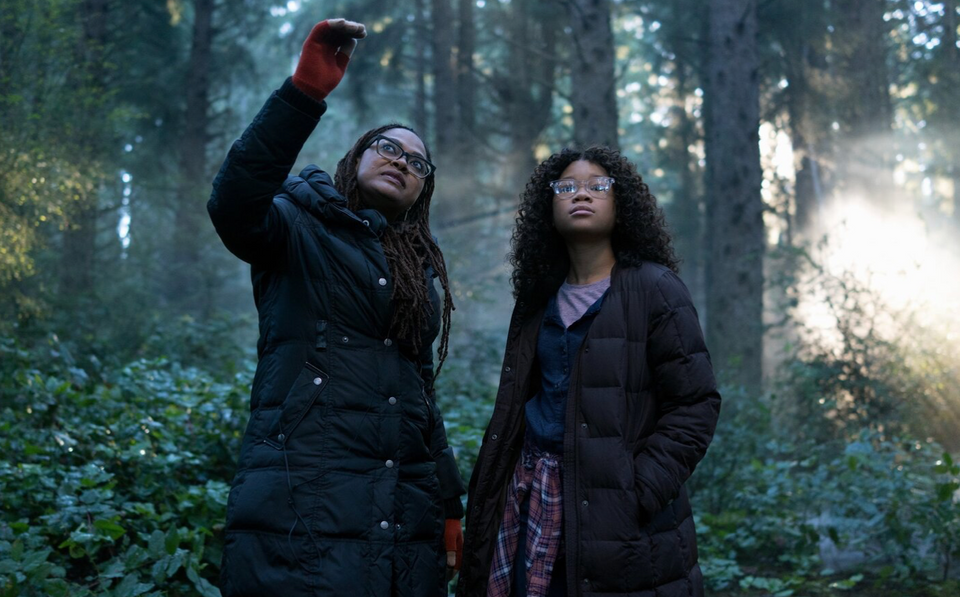Many of the standard traits of a dystopian vision are in Jennifer Phang’s Advantageous. Set in a future, unnamed megacity, water is scarce, surveillance and shadowy corporations are plentiful, and terrorists intermittently set off bombs. Like a sparser, filmic mixture of Children of Men, Margaret Atwood’s The Handmaiden’s Tale, and Blade Runner, the city’s dark corners are packed with barely hidden suffering—homeless sleep under well-trimmed bushes, young girls work as silver-masked prostitutes. Similar to its science fiction forbearers, Advantageous is as concerned about us as it is about the future.
Neither a space opera nor a dystopian battle tale, and shot on a slim budget, saving the world isn’t part of Phang’s second feature. A relationship provides its driving drama, a mother and daughter and the question of who they are together. The mother, Gwen, (played by Jacqueline Kim) hopes to secure a stable life for her gifted daughter, Jules (Samantha Kim). Gwen works as a marketing spokeswoman for the Center for Advanced Health and Living, an eerie company about to launch a procedure that allows for the transfer of a consciousness from an old body to a young one. However, Gwen is too old for their new target audience, and is let go.
Jacqueline and Samantha Kim, even with their sparse lines and short conversations, inhabit the screen with a well-acted intimacy: singing on the piano, eating pecan pie together on the floor, and they only touch one another. This intimacy isolates them, provides small bits of comfort in a city that is slowly breaking apart.
Backgrounds in science fiction films do more work than in your standard fictional story, for settings and sounds provide indirect exposition about the history and state of their alternate world. Even though the visual effects for the city skyline with its vast glass and grey skyscrapers are well done, the sound mixing provides the most impressive aspect of the film’s backdrop. Most of the time this city is deathly quiet. As Gwen walks on sidewalks it sounds like she is always in an empty hallway, for you can always hear her heels. This absence of urban white noise makes the repression even more ominous, as if the city eats people and sound.
The silent grey city contrasts with the music of their apartment. Music binds Gwen and Kim together, providing a balm for their wounds. When Jules hears her mother crying in the other room, she turns on a piano sonata. After learning of Gwen’s rejected application from an elite prep school, they listen to music on the couch. Through music, even more so than words, they know and can comfort each other. This is the only relationship that you feel like you know what it is—its motivations are not masked in lifeless speech, and it is not another attempt to grab more in a world marked by silent scarcity.
Issues of gender, class, revolution, race, reproductive rights, concerns about technology, and identity all compose the atmosphere and story of Phang’s film. Gwen needs a job and money, but due to some sort of post-feminist backlash, the elite are recommending that women stay at home. A wealthy socialite club invites Gwen to discuss her daughter joining their “bonding camp,” a matchmaking group for elite children. When they learn Jules’ father is not in the picture, the group’s leader ends the conversation with an arctic, “That is a wild card.” News stations drone with zombie-ish bureaucratic language about their city and its “bright future.” The clutter of societal problems manages to make the point: this world is the wedge, pulling Jules and Gwen apart.

Science fiction writer Frank Herbert supposedly said, “The function of science fiction is not always to predict the future but sometimes to prevent it.” Yet the choice to include so many issues lends the impression that Phang is more concerned with critiquing the present. This critical purpose leads to a crowded story, for ultimately, there are too many ideas in the film. One after another, societal problems are introduced and dropped. These missteps in the script create forced conversations that don’t have anything to do with the characters, but are clearly about introducing one more way in which this world is warped. For example, in four brief lines we learn that most women are infertile by the time they are twenty. It seems as if Phang didn’t trust the indirect exposition of her well-done background enough, leading her to shove in more direct commentary than necessary.
One of the movie’s best scenes demonstrates what Phang is capable of when she trusts her background. Gwen is sitting a park, talking with her mother on the phone and asking for money. Late sun slants through the trees. A child prostitute takes off her shoes and mask in the background, and Gwen refuses to allow her parents to meet Jules. As her mother growls Gwen’s name, an explosion rocks a skyscraper in the distance. The mother’s voice shifts again, and she begins praying for Gwen, who tearfully hangs up. Even with its odd editing, here the foreground of fractured relationships and the background of the disintegrating city perfectly balance one another. Past sins and future fears implode in the present with a fatalistic horror—everything is, and will remain broken.
Jobless, without family support, and driven by a concern for Jules’ future, Gwen desperately returns to the Center. She offers to undergo the procedure and have her consciousness transferred to a new body, selling her rehiring with how satisfied customers are the best promoters. This decision, and the rupture it creates, marks the rest of the film.
The Center’s advertising tagline is “Be the you you were meant to be.” Within it is the main question of the film: What makes you, you? Is it your choices, your body, your relationships, your purpose? There are always societal forces and systems that want to answer the question of identity for you, to determine your desires, to draw you in and form you with the force of their gravity.
In the brokenness of the end, Gwen 2.0 tells her daughter: “You’re alive because of energy and empathy.” And together, in the park, with one hand raised to the heavens and one pointing to the earth, Jules and Gwen spin like whirling dervishes. They spin, with directed energy, chosen speed, together, moving with the peace available to them, possibly salvaging their own gravity.
Editor’s Note: Advantageous is now streaming on Netflix.



